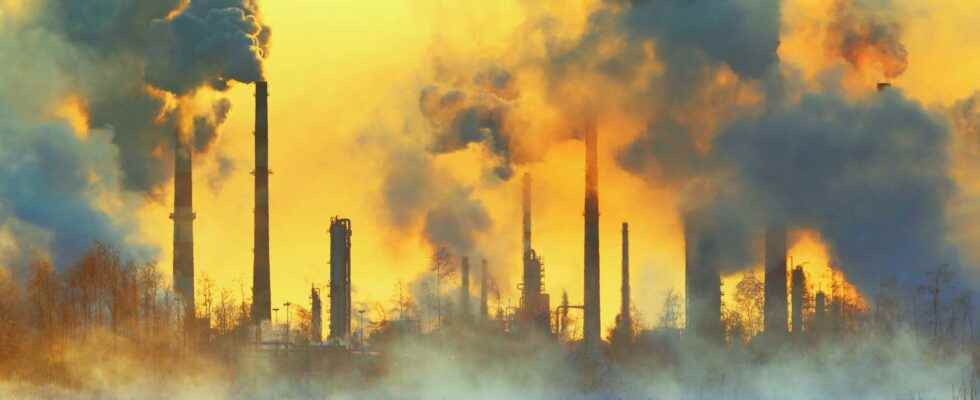When we talk about global warming, we immediately talk about carbon dioxide (CO2). And we sometimes forget rather quickly that there are other greenhouse gases. Methane (CH4) especially. Its ability to trap heat is significant. According to researchers, it is now crucial to reduce emissions to achieve the objectives set by the Paris Agreement.
You will also be interested
[EN VIDÉO] Visualization of methane emissions on the planet In video: methane emissions by regions of the globe and by sources as well as an estimate of the weight of emissions by latitude.
the carbon dioxidethe famous CO2 that we all know now, is not the only one greenhouse gas (GHG) in our atmosphere. There are others. Many others. Water vapor (H20), for example. L’ozone (O3), the nitrous oxide (NOT2O) or halocarbons — a family to which belong the chlorofluorocarbons known as CFCs. Or the one we are starting to talk a lot about too: methane (CH4).
It is cited more and more because it has its share in the global warming anthropogenic. At COP 26, the 26and Conference of the signatories of the United Nations Framework Convention on Climate Change (COP 26), moreover, 105 countries representing approximately half of the emissions anthropogenic sources of methane have pledged to reduce these emissions by 30% by 2030. Even though colossal leaks of industrial methane have just been observed by satellite, researchers from Stanford University (United States) offer us today to better understand the issues behind this commitment.
For this, it should be remembered that not all greenhouse gases have the same global warming potential (GWP). The same ability to trap the heat. It is thus regularly reminded that the CH4 is a greenhouse gas at least 25 times more potent than CO2. Understand that, over a period of 100 years — a period arbitrarily set by the Kyoto Protocol — one kilo of methane produces 25 times more greenhouse effect than one kilo of carbon dioxide. It’s already huge. But Stanford researchers now point out that the warming power of CH4 is vastly underestimated. If we place ourselves on a shorter time scale.
Methane should not overshadow CO2
Indeed, the duration lifetime of CO2 in our atmosphere is disproportionate to that of CH4. We are talking about thousands of years for the first against only ten years for the second. Thus, if it is crucial to drastically reduce our CO2 in the near and more distant future, to limit warming to 2°C — or better, 1.5°C — above the pre-industrial average, researchers warn that it will also be necessary to consider our short-lived greenhouse gas emissions such as methane.
According to them, adopting a new metric based on a period no longer of 100 years, but of only 24 years, would make it possible to align commitments to reduce emissions of CH4 on the goals set by the Paris Climate Agreement. However, on this time scale, the GWP of the methane would be about 75 times greater than that of CO2. What to put in light its weight in the short term.
Other scientists remain more circumspect about the idea of changing the time frame for setting the GWP of each greenhouse gas. They fear that this will obscure the fact that measures of reduction of GHG emissions short-lived can only have a real effect for a limited time. The cooling effect will eventually diminish over time. Thus they note that, even if it seems necessary to reduce our methane emissions, it remains essential to limit our CO2 emissions in the long term.2.
Interested in what you just read?
